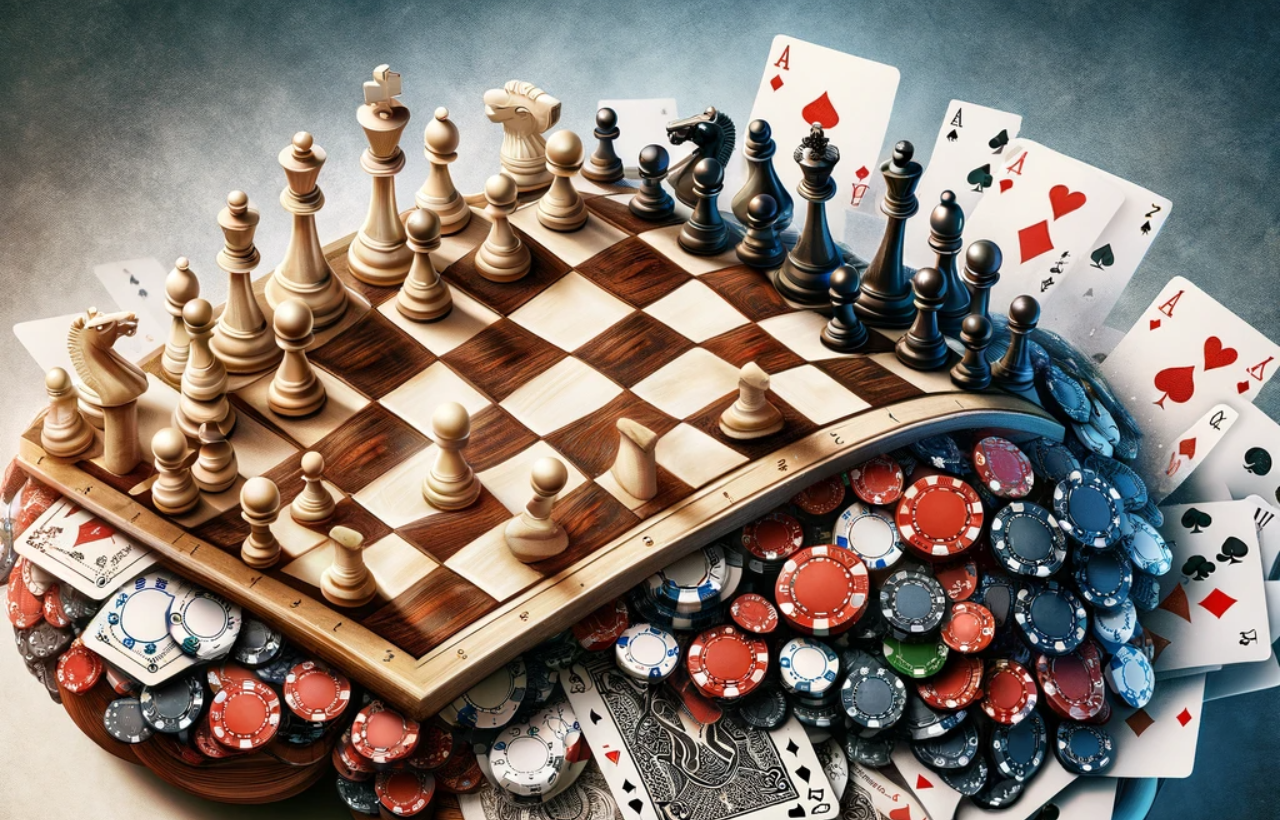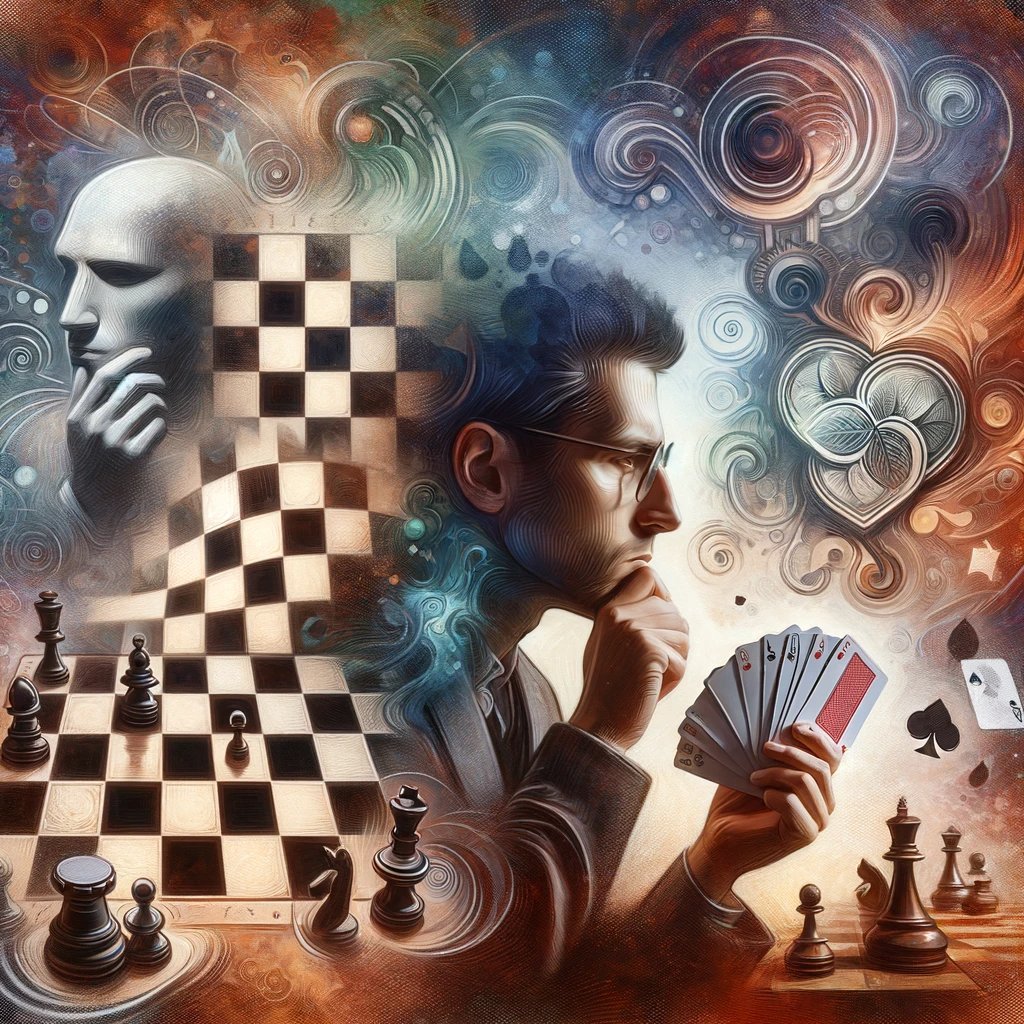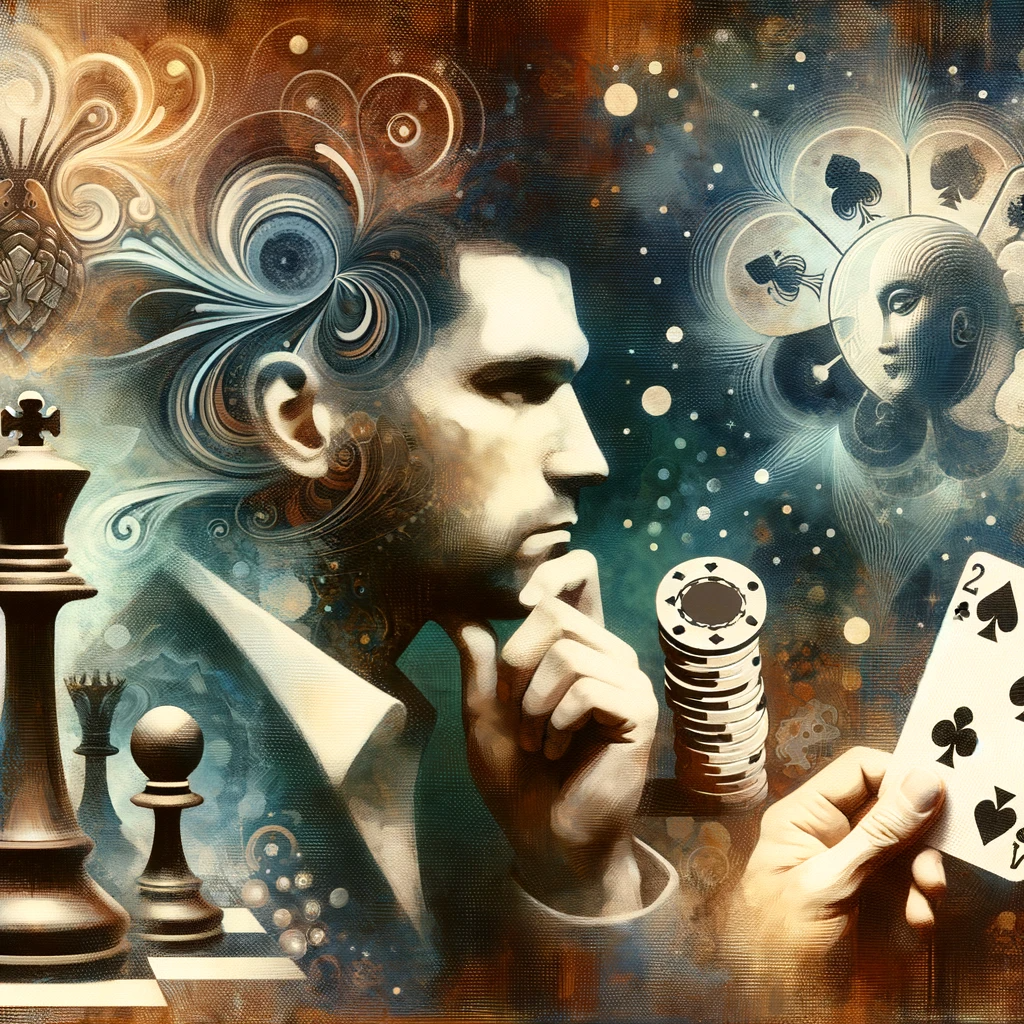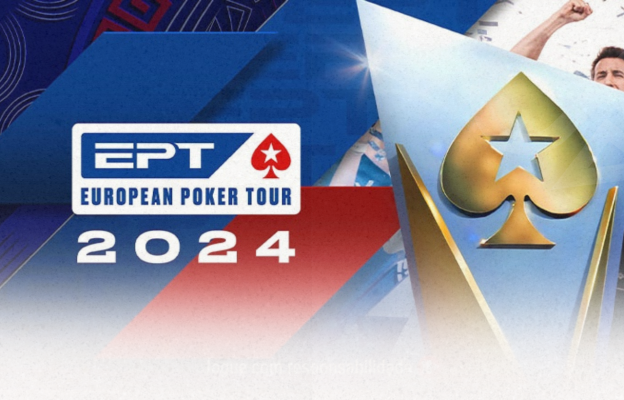Poker vs. Chess: Strategies and Strategic Similarities in the Mental Game
30/01/2024

In sports of the mind, where strategy and mental ability are intertwined, poker and chess have emerged as protagonists. They are two fascinating universes, each with its own essence, which attract enthusiasts in search of intellectual challenges.
Both are games of chance, where the interpretation of opponents plays a crucial role. Both require not only technical skills, but also a deep understanding of human psychology. They are games of meticulous planning, analytical rigor and a commitment to constant study.
In this article, we'll explore the connections that unite these two sports of the mind, revealing the shared strategies that make them so captivating and challenging.
Poker and Chess: Mental Game in Focus
In both sports, the ability to anticipate moves is fundamental. In poker, predicting your opponents' decisions is just as crucial as anticipating their moves in a game of chess. Both games require a perceptive reading of the opponent's intentions.

Strategic Thinking
Both poker and chess require strategic thinking, since players need to make calculated decisions and anticipate the actions of their opponents. Both games involve analyzing the board or hand and drawing up plans to outwit the opponent. In chess, players try to capture their opponent's king, while in poker, the goal is to maximize the expected value (EV).
Decision-making under pressure
Both games require psychological pressures and time. In poker, making quick and assertive decisions is vital, just as it is in chess, where the clock is an additional adversary. Dealing effectively with pressure is a key skill in both sports.

Psychological warfare
Both poker and chess involve an element of psychological warfare to gain an advantage. In chess, players can try to trick their opponents by creating traps or illusions, forcing them to make mistakes. Similarly, in poker, players can use strategies such as bluffing and reading their opponents' body language (in the case of live tournaments) to gain an advantage.
Skill and Mastery
Both games require skill and mastery to perform consistently at a high level. Just as chess players aim to achieve a higher ELO rating, poker players aspire to improve their win rate. Becoming proficient at either game requires hours of practice, studying strategy and learning from previous experiences.
Adaptability
In both poker and chess, players need to adapt their strategies based on the ever-changing dynamics of the game. A chess player may need to switch from an aggressive to a defensive approach based on the position of his pieces. In the same way, a skilled poker player adjusts his strategy based on the dynamics of the table, his opponents' playing styles and the changing odds throughout the hand.
Competitive nature
Both poker and chess are highly competitive, attracting players who thrive on intellectual challenges. Excitement, calculated risks and the desire to outwit opponents create a thrilling atmosphere in both games. Tournaments and competitions in both poker and chess highlight the competitive aspect, with players eager to prove their skills and outdo their competitors.
We leave you with the following suggestions: Queens Gambit and Rounders
In a nutshell, poker and chess share a common ground of strategies and mental challenges. Despite having different game rules and objectives, the underlying mental skills and strategic thinking required in both make them captivating mind sports. The ability to think strategically, make informed decisions, use psychological tactics and adapting to changing situations are shared qualities that fascinate players in both poker and chess. Whether you prefer the thrill of poker's uncertain outcomes or the precision of chess's calculated moves, both games offer an engaging challenge for those seeking mental stimulation and competition.



Comments